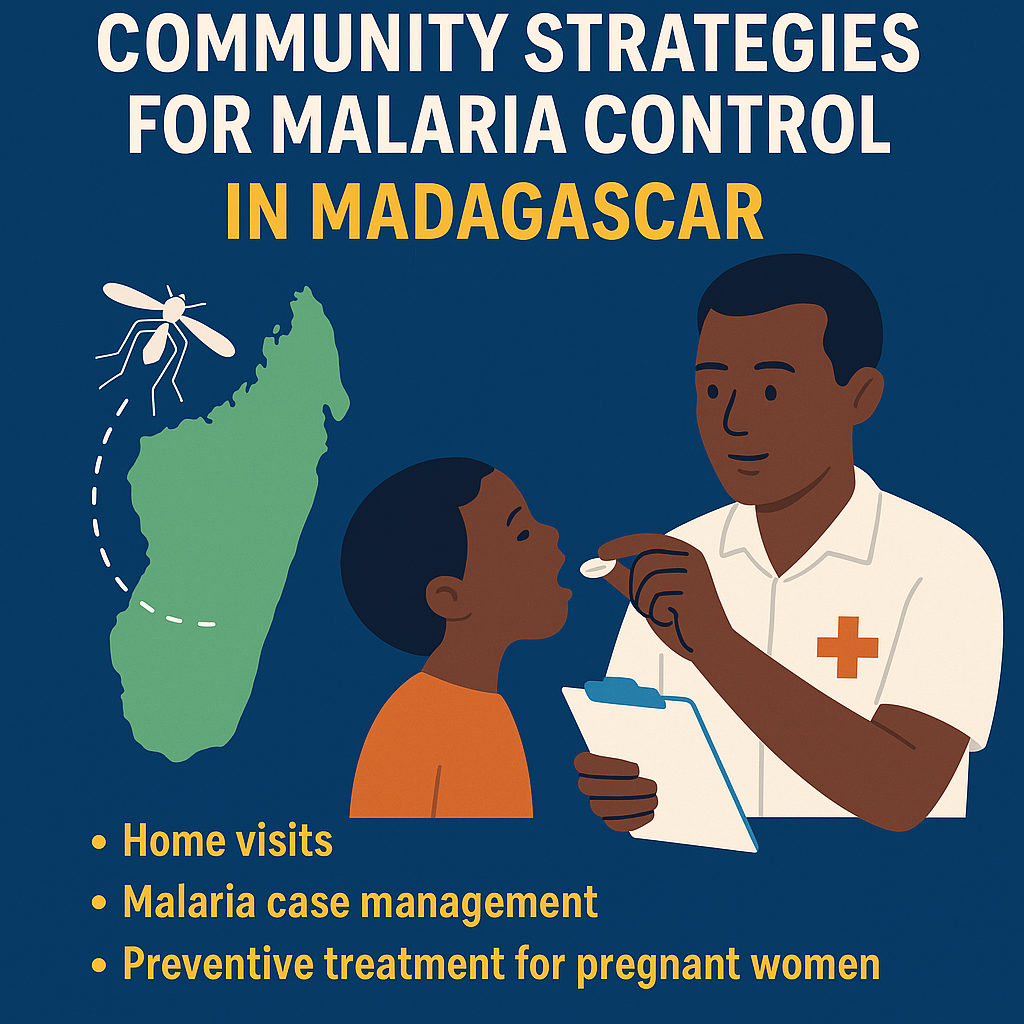Scaling Community Strategies for Malaria Control in Madagascar: A Summary of ACCESS’s Impact and Lessons Learned
Scaling Community Strategies for Malaria Control in Madagascar: A Summary of ACCESS’s Impact and Lessons Learned

Malaria remains a persistent health threat in Madagascar, especially in regions like Vatovavy, Fitovinany, and Boeny where outbreaks are common. To combat this, the ACCESS program aligned closely with the Ministry of Public Health and the National Malaria Control Program (PNLP) to strengthen community-based strategies that bring malaria services closer to the people who need them most.
At the heart of this approach were community health volunteers (CHVs)—the first point of contact for many households. ACCESS trained more than 5,300 CHVs in integrated community case management (ICCM) and provided ongoing mentorship and supervision. By the end of the project in 2025, nearly 14,000 CHVs were actively delivering malaria prevention and treatment services.
A cornerstone of this work was the Integrated Community-Based Intervention (ICBI) approach, which included:
- Home visits for early malaria detection and prevention,
- Malaria case management for all age groups at community sites,
- Intermittent Preventive Treatment for pregnant women (IPTp), and
- Pre-referral treatment for severe malaria in children under five using rectal artesunate capsules (ARC).
From 2023 to 2024 alone, more than 180,000 people were reached with ICBI services, nearly 58,000 fever cases were tested, and 96% of malaria-positive patients received prompt treatment. More than 9,000 pregnant women received critical IPTp doses at the community level, helping reduce maternal and neonatal risk from malaria.
ACCESS also played a pivotal role in national malaria initiatives, supporting:
- The integration of ICBI data into Madagascar’s District Health Information System (DHIS2),
- Mass distribution campaigns of insecticide-treated nets, including over 7,000 SBC radio messages and COVID-19 protection for frontline workers.
Key Takeaways
- Supply chain matters: Without consistent access to commodities like RDTs, SP, and ACTs, even the best-trained CHVs cannot succeed.
- CHVs need motivation: Incentives are crucial to sustain their engagement, particularly for time-intensive tasks like home visits.
- Integrated care boosts efficiency: Home visits offer opportunities beyond malaria—like checking immunization status, nutrition, and family planning needs.
Thanks to these efforts, the ICBI approach has been fully integrated into the 2023–2027 National Strategic Plan for Malaria Control, ensuring that Madagascar continues to strengthen its community-level response for years to come.
Visit the ACCCESS program page to learn more.